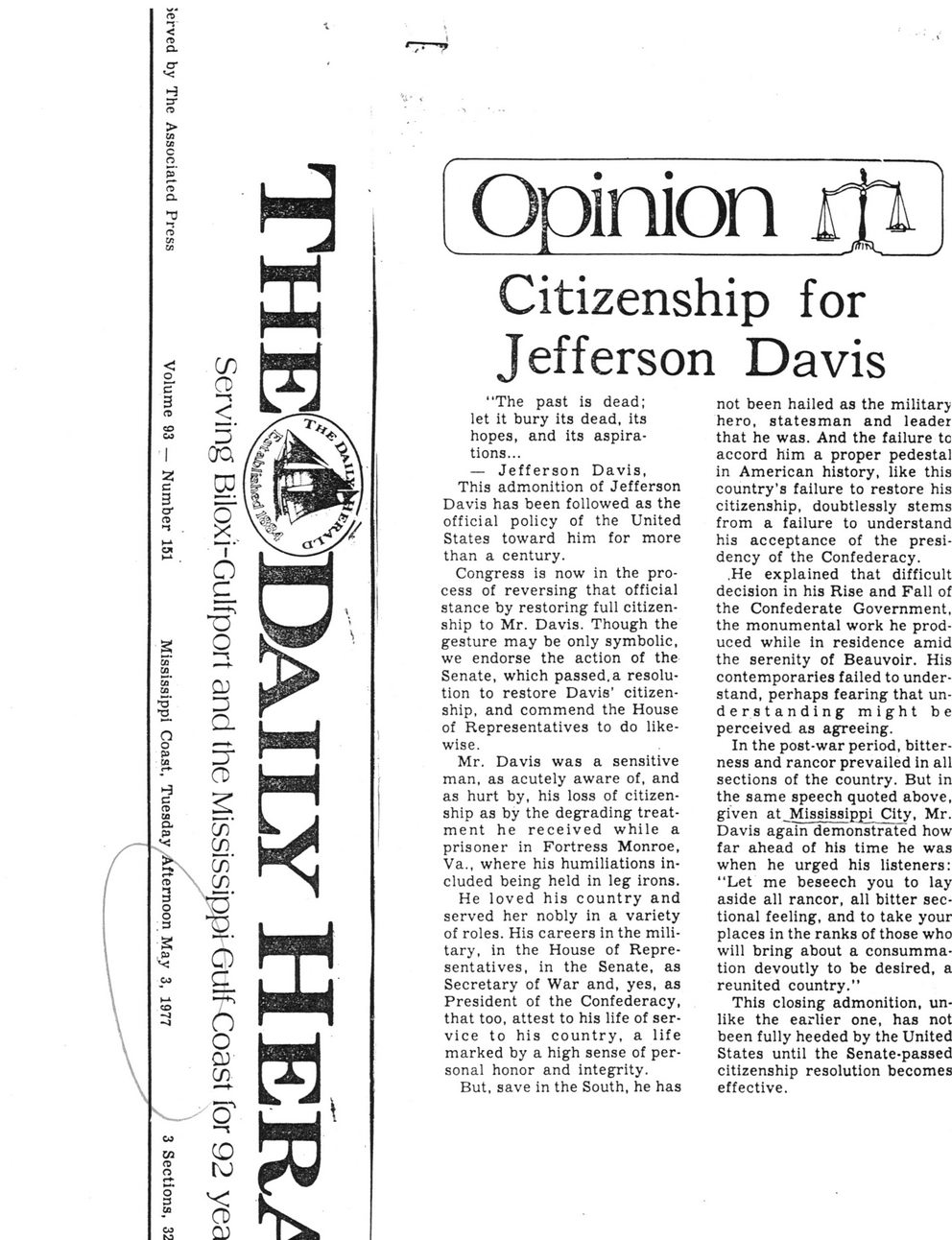This text was obtained via automated optical character recognition.
It has not been edited and may therefore contain several errors.
< CL O* << H rr o > CA 03 c o o Q. n t/i C/J < ? c 3 2 c 3 a* co S?. 5* 00 *3? "2. o o p co C Q CO a p *< o ?n 3 O o 3 . P v- <x> C/3 o o e+ o 3 CO Opinion ill Citizenship for Jefferson Davis ?The past is dead; let it bury its dead, its hopes, and its aspirations... ? Jefferson Davis, This admonition of Jefferson Davis has been followed as the official policy of the United States toward him for more than a century. Congress is now in the process of reversing that official stance by restoring full citizenship to Mr. Davis. Though the gesture may be only symbolic, we endorse the action of the Senate, which passed.a resolution to restore Davis? citizenship, and commend the House of Representatives to do likewise. Mr. Davis was a sensitive man, as acutely aware of, and as hurt by, his loss of citizenship as by the degrading treatment he received while a prisoner in Fortress Monroe, Va., where his humiliations included being held in leg irons. He loved his country and served her nobly in a variety of roles. His careers in the military, in the House of Representatives, in the Senate, as Secretary of War and, yes, as President of the Confederacy, that too, attest to his life of service to his country, a life marked by a high sense of personal honor and integrity. But, save in the South, he has not been hailed as the military hero, statesman and leader that he was. And the failure tc accord him a proper pedestal in American history, like this country?s failure to restore his citizenship, doubtlessly stems from a failure to understand his acceptance of the presidency of the Confederacy. .He explained that difficult decision in his Rise and Fall of the Confederate Government, the monumental work he produced while in residence amid the serenity of Beauvoir. His contemporaries failed to understand, perhaps fearing that un-derstanding might be perceived as agreeing. In the post-war period, bitterness and rancor prevailed in all sections of the country. But in the same speech quoted above, given at Mississippi City, Mr. Davis again demonstrated how far ahead of his time he was when he urged his listeners: ?Let me beseech you to lay aside all rancor, all bitter sectional feeling, and to take your places in the ranks of those who will bring about a consummation devoutly to be desired, a reunited country.? This closing admonition, unlike the earlier one, has not been fully heeded by the United States until the Senate-passed citizenship resolution becomes effective.

Davis, Jefferson Jefferson-Davis-012